June 21, 2025 | 03:33 GMT +7
June 21, 2025 | 03:33 GMT +7
Hotline: 0913.378.918
June 21, 2025 | 03:33 GMT +7
Hotline: 0913.378.918
The Southern Irrigation Science Research Institute reports that the Mekong basin has reached the dry season's peak period in 2021-2022. Upstream flows to the Mekong Delta tend to decrease.
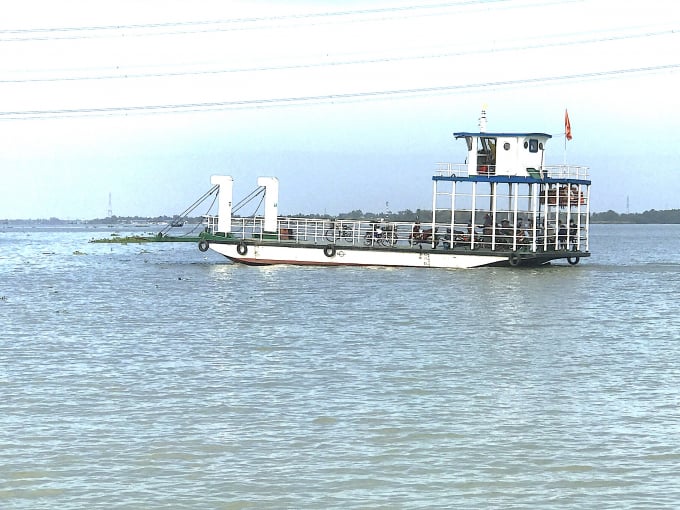
The water level in the Mekong River upstream tends to reduce. Photo: Minh Dam.
Over the last week, the water level at Kratie station in Cambodia has stabilized around 7.2-7.4m, higher than the annual average.
The remaining capacity in Bien Ho is approximately 5.18 billion m3, which is higher than the dry season in 2020-2021 but lower than the annual average. The water level reaches 1.56 – 1.7m in Tan Chau and Chau Doc.
Reservoirs in China discharge water in limited volumes and produce electricity by utilizing high water poles. As of January 23, the discharge flow downstream from Jinghong hydropower is less than 700 m3/s, the equivalent of one electric generating unit. In the future years, the reservoirs in the basin will continue to release a restricted amount of water, which means that the flow will continue to decrease significantly, perhaps allowing the salt to intrude deeper.
The upper Mekong Delta, which includes the provinces of An Giang and Dong Thap, as well as upstream Long An, Kien Giang, and Can Tho city, has more water resources than other delta regions. February's average water level is expected to be 20-30 cm lower than the annual average.
Until February, the area between the Mekong Delta (including Can Tho City, Tien Giang, Long An, Kien Giang, Hau Giang, Dong Thap, and Vinh Long, as well as the salt-controlled regions of Bac Lieu, Soc Trang, Tra Vinh, and Ben Tre) and the Tien and Hau rivers may be impacted by high tides. In February and March, salt concentrations of 4g/l can intrude to depths of 50-65km, affecting drain water collecting.
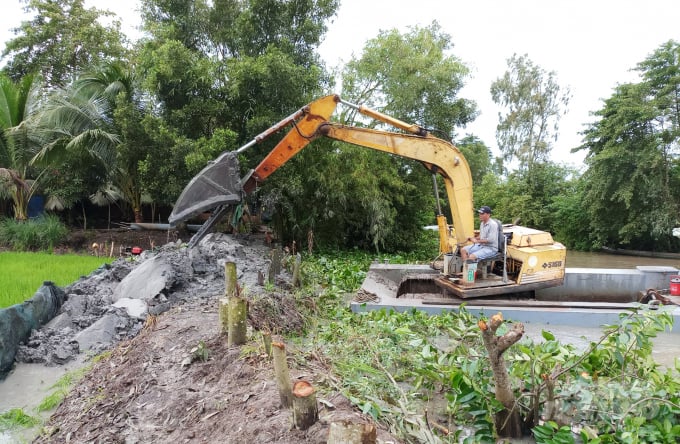
The risk of deeper saltwater intrusion will take place in the coming time in the Mekong Delta. Photo: MD.
The River Delta's coastal region, which includes the provinces of Long An, Ben Tre, Tra Vinh, Soc Trang, Bac Lieu, Ca Mau, and Kien Giang, may affect salty and fresh output. Unusual salinity, water scarcity, and droughts can develop in locations where salt management is not complete. Between February and March, salt may infiltrate distances of 50-65 kilometers.
To mitigate drought and salinity risks, the Southern Irrigation Science Research Institute recommended that local authorities take proactive measures such as developing a production plan, arranging crops, operating reasonable construction systems, and preparing response solutions prior to the start of the dry season. Simultaneously, increase salt monitoring and update frequent projections in order to alter the strategy in response to changes in water sources.
Translated by Linh Linh
![Turning wind and rain into action: [10] Advancing accessible climate services for farmers](https://t.ex-cdn.com/nongnghiepmoitruong.vn/608w/files/linhnhp/2025/06/20/1911-z6704423696987_15fd32ffc26d590d204d520c9dac6786-nongnghiep-161854.jpg)
(VAN) Not only does it help farmers 'avoid droughts and rains,' the development of agricultural climate services also enhances their ability to proactively adapt to a rapidly changing climate.
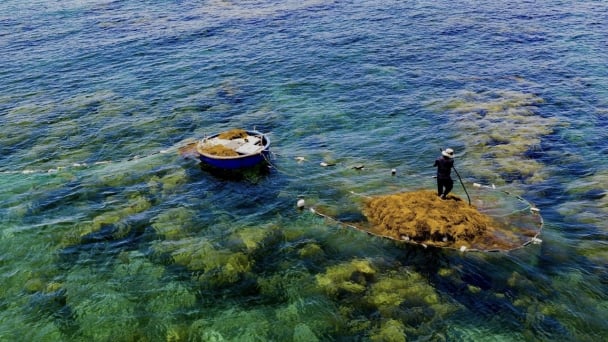
(VAN) With international assistance, the harvesting of sargassum seaweed in Quang Ngai has become increasingly regulated, thereby safeguarding marine life and ensuring the stability of coastal communities' livelihoods.
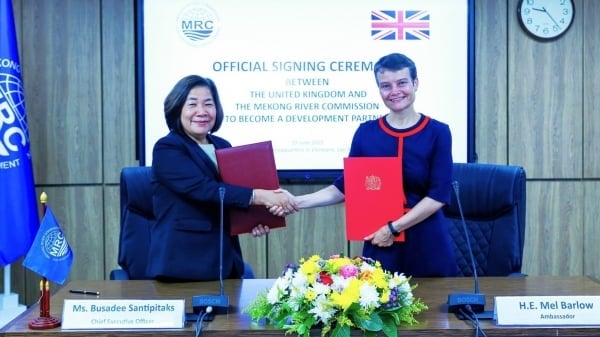
(VAN) On June 19, the United Kingdom officially became a Development Partner of the Mekong River Commission.

(VAN) Biodiversity is being threatened by traditional remedies made from wildlife. Traditional medicine and humans must change to live in harmony with nature.

(VAN) Agrifood investment and finance solutions for people and the planet.

(VAN) Microplastic contamination has become pervasive in seafood, posing unprecedented challenges for food safety and marine ecosystems.
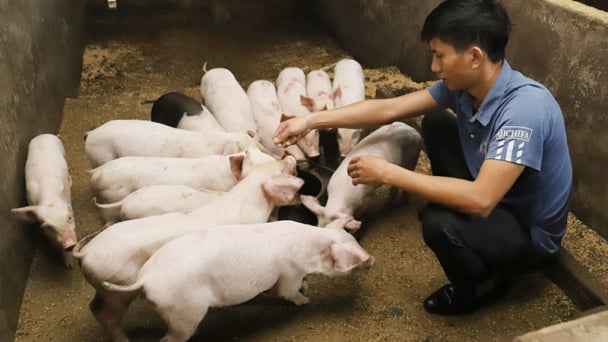
(VAN) Proactively using vaccines, combined with transport control and enhanced surveillance, is the only viable path toward biosecure and sustainable livestock production in Vietnam.